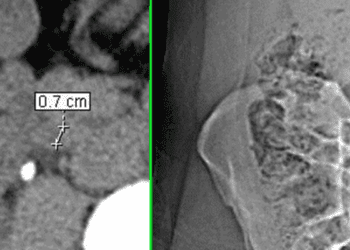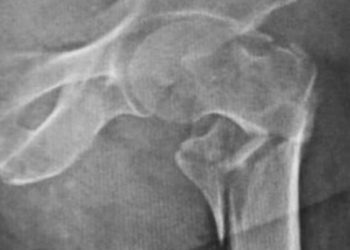Genome sequencing may offer diagnostic utility beyond exome sequencing at acceptable cost
1. In this cohort study of families with suspected Mendelian disorders for whom preliminary genetic testing had not revealed a diagnosis, nearly one-third of families obtained a plausible molecular diagnosis after genome sequencing.
2. While enhancing prior exome sequencing likely would have revealed the causal variants in most cases, over one-quarter of the new diagnoses were only possible through genome sequencing.
Evidence Rating Level: 2 (Good)
Study Rundown: Next-generation gene panel and exome sequencing have dramatically improved our understanding of rare diseases and our ability to develop precision therapies, but most patients with rare diseases still do not receive a molecular diagnosis. Some clinicians have turned to whole genome sequencing in pursuit of greater sensitivity. Still, this approach comes with a much higher analytic and financial burden in exchange for only a modest increase in diagnostic yield. This study was designed to clarify the incremental benefit of genome sequencing after standard genetic testing for those with suspected rare monogenic diseases and identify phenotypic features associated with successful diagnosis. It was found that, in almost thirty percent of participating families, short-read genome sequencing revealed a definite or probable molecular diagnosis. In one-quarter of this subset, the causal variant was found in a newly discovered disease-associated gene. Further, over one-quarter of families with a new diagnosis had structural, intronic, or non-coding variants undetectable by add-ons to standard exome sequencing. One limitation of this study was that, by being conducted primarily at a single center for Mendelian genomics, families selected for inclusion already had a high probability of being diagnosed with a monogenic disease. Thus, the generalizability of the reported diagnostic yield to other populations may be affected.
Click here to read the study in NEJM
In-Depth [prospective cohort study]: This study was performed primarily at the Broad Center for Mendelian Genomics, with a subsequent replication cohort recruited from the Institute of Human Genetics in Leipzig, Germany. A total of 744 families with suspected monogenic diseases underwent short-read genome sequencing in the initial cohort; of these, 218 families (29.3%) ultimately received a molecular diagnosis. Most diagnoses could have been reached by reanalysis or augmentation of exome-sequencing data (copy-number variants, mitochondrial variants, noncoding transcripts, etc.), but genome sequencing was determined to have been necessary in 61 (28.0%) of these cases. Causal variants were found in previously known disease-associated genes, newly discovered disease-associated genes, or both in 157 families (72.0%), 60 families (27.5%), and one family (0.5%), respectively. The overall diagnostic yield was 44 of 215 (20.5%) for probands only, 14 of 77 (18%) for duos, 136 of 369 (36.9%) for trios, and 24 of 83 (28.9%) for larger family groups. These patterns were consistent in the independent replication cohort, where 18 of 78 families (23%) received a molecular diagnosis. Of these, six (33%) had variants undetectable by exome reanalysis. The diagnostic yield appeared to be highest among probands with neurodevelopmental conditions or syndromic anomalies and lowest among families in which duos went sequencing. In summary, these findings suggest that genome sequencing may have an increasingly prominent role in the characterization of rare diseases.
Image: PD
©2024 2 Minute Medicine, Inc. All rights reserved. No works may be reproduced without expressed written consent from 2 Minute Medicine, Inc. Inquire about licensing here. No article should be construed as medical advice and is not intended as such by the authors or by 2 Minute Medicine, Inc.









